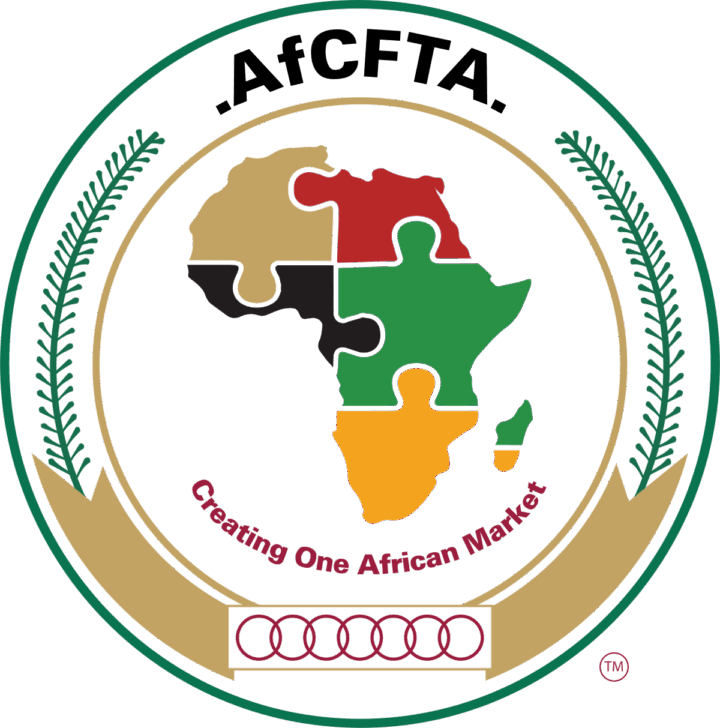The New Partnership for Africa’s Development (NEPAD) Nigeria has called on Nigerians, particularly entrepreneurs, business leaders, and policymakers, to strengthen their capacity to fully participate in the African Continental Free Trade Area (AfCFTA) agreement. The organisation said this is crucial for Nigeria to maximise the vast opportunities presented by the continent’s single market, which aims to enhance intra-African trade, industrialisation, and sustainable economic growth.
Speaking at a national sensitisation forum held in Abuja, the Chief Executive Officer of NEPAD Nigeria, Princess Gloria Akobundu, said the AfCFTA is a game-changer for Africa’s economic development but requires strategic readiness and capacity building among member states to harness its benefits effectively. She urged Nigerians to deepen their knowledge of the trade framework and invest in quality production, innovation, and competitiveness to thrive under the continental arrangement.

“The AfCFTA is one of the most transformative initiatives on the African continent, but success depends on how ready each member nation is to compete. Nigeria must therefore strengthen its institutional capacity, develop its human resources, and enhance value addition across sectors to take advantage of this trade pact,” Akobundu said.
She emphasised that the country’s ability to benefit from AfCFTA hinges on efficient trade infrastructure, standardisation of goods, improved logistics, and alignment with global best practices. According to her, the private sector, government agencies, and civil society must collaborate to eliminate structural bottlenecks that have hindered Nigeria’s competitiveness in international trade.
Akobundu noted that NEPAD Nigeria, working in collaboration with the African Union Development Agency (AUDA-NEPAD), has initiated several programmes to build local capacity in trade facilitation, export development, and digital transformation. “We are working to ensure that Nigerian businesses, especially small and medium-scale enterprises (SMEs), are empowered to compete favourably in regional and continental markets,” she added.
She also highlighted the need for more awareness campaigns to educate Nigerians on the provisions of the AfCFTA agreement and the economic opportunities it presents. “Many people still do not understand how AfCFTA works or how they can participate in it. This is why we must build the knowledge base and ensure that our citizens are informed and equipped to take advantage of the system,” Akobundu stressed.
The NEPAD boss explained that the organisation’s focus is to align its programmes with the National Development Plan (NDP 2021–2025) and the Agenda 2063 of the African Union, both of which aim to drive inclusive growth, industrialisation, and sustainable development. She added that capacity building in trade-related areas such as e-commerce, cross-border logistics, and agricultural value chains will be central to Nigeria’s successful integration into the continental market.
Also speaking at the event, the Permanent Secretary, Ministry of Industry, Trade, and Investment, Dr. Evelyn Ngige, reaffirmed the federal government’s commitment to supporting the implementation of AfCFTA. She said that the ministry, in collaboration with other relevant agencies, has been developing policies to improve trade facilitation and ensure that Nigerian products meet global standards.
“The government is committed to ensuring that our industries are ready to compete under AfCFTA. We are working on improving port operations, customs efficiency, and export procedures to create a business environment that supports competitiveness,” Ngige said.
She further explained that the AfCFTA presents an opportunity for Nigeria to diversify its economy away from oil dependence by promoting value-added manufacturing, agriculture, and technology-driven services. “We have the human and material resources to lead in regional trade. What we need now is a stronger institutional framework and active participation from the private sector,” she added.
The President of the Nigerian Association of Chambers of Commerce, Industry, Mines and Agriculture (NACCIMA), Dele Oye, commended NEPAD’s initiative and called for greater collaboration between the government and the business community. He noted that Nigeria must develop its export capacity and address infrastructural challenges such as poor road networks, unreliable power supply, and high logistics costs to benefit meaningfully from the trade agreement.
Oye said, “The AfCFTA provides a platform for over 1.4 billion consumers across Africa. If Nigeria wants to be a key player, our industries must be efficient, our supply chains resilient, and our policies business-friendly. This is not the time to lag behind.”
Participants at the event agreed that while AfCFTA offers immense potential, the benefits will only materialise if Nigeria builds strong institutional systems and develops a skilled workforce capable of driving industrial growth and innovation. They also stressed the importance of public-private partnerships in implementing reforms that will position Nigeria as a competitive force within Africa.
Akobundu concluded by reaffirming NEPAD Nigeria’s readiness to continue providing technical support and advocacy for policy reforms that will empower Nigerian enterprises to explore new markets. She urged stakeholders across all sectors to unite in building a robust trade ecosystem that aligns with AfCFTA’s vision of a prosperous, integrated Africa.
“The AfCFTA is not just a trade agreement — it is a call to action for Africa’s economic independence. Nigeria must lead the way by building the right capacity, strengthening its industries, and fostering collaboration to achieve shared prosperity,” she said.
Support InfoStride News' Credible Journalism: Only credible journalism can guarantee a fair, accountable and transparent society, including democracy and government. It involves a lot of efforts and money. We need your support. Click here to Donate
